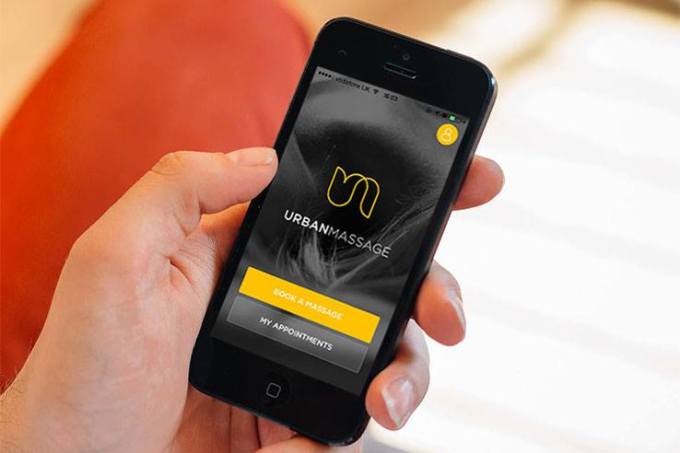Launched in 2014 by myself and Giles Williams, Urban is a technology-enabled marketplace that empowers freelance practitioners to offer their services directly in the client’s home. Through the Urban app, you can book a range of services from massage to physio to beauty and fitness sessions.
Urban started life in London and operates across 3 other cities (Manchester, Birmingham and Paris), the platform is home to over 4,500 freelance practitioners who are receiving at least 70% of share of booking value compared to 20-25% typically when working within a high street salon. 100% of all tips goes directly to the practitioners.
The platform has surged to an all-time-high since the reopening of personal care services in England delivering over 20,000 hours of treatments per month and this is growing sharply.

How did the idea come about for Urban?
I was hugely frustrated as a consumer of the way the industry was poorly organised, the wellness services industry is hugely fragmented and so makes it hard for buyers to find high quality and trusted providers. As other industries have gone online and offers the best in class experience, Giles and I felt there was a huge problem we could solve and become the de-facto platform to book wellness services.
More from Interviews
- Meet Roman Eloshvili, Founder of ComplyControl
- Inside Mobile Payments with Bojoko’s Ville Saari
- Meet Steve Haskew, Group Director of Sustainability and Growth At Circular Computing
- A Chat with Hakob Astabatsyan, CEO and Co-Founder of Synthflow AI
- Meet Ernesto Suarez, CEO at Travel Insurance Provider: Gigasure
- Under Pressure and On the Clock: Gurhan Kiziloz’s Nexus International to Hit $1.45B Revenue in 2025
- Daisy Ip of InvestHK: Why Hong Kong Continues To Grow In Popularity Amongst UK Fintech Startups
- A Chat with AJ Balance, Chief Product Officer at Grindr
Freelancers using the Urban platform make 3 times more money than working in most high street salons, this has become such a big part of Urban’s mission, can you tell us a bit more?
Having interviewed hundreds of freelancers personally, I discovered it is not uncommon that freelance therapists would take home 20-25% share of the economics in a salon. A huge chunk of the ticket price goes to the overheads, marketing and profits to the salon owner.
Naturally, I started to join the dots. What if we remove those overheads and allow enough margin to pass back to the freelancers the majority chunk of the revenues and make it cheaper for clients?
By achieving this, we would be able to make treatments more accessible, transparent and fair for the hard-working practitioners in the industry.
For Giles and I, we’re entrepreneurs that saw an opportunity where we could use technology as force for good. Using technology to solve poor consumer experience, empower individuals to earn fairly, and democratising access to wellness for all.
Freelancers on Urban make at min 70% of the appointment fee, 14% is reinvested in acquiring future clients, 1% for card fees and the rest to cover the cost of platform overheads.
What are the trends you’ve observed during and post-pandemic?
We saw over the pandemic that there has been a huge shift in the attitude towards looking after yourself. This has accelerated the demand for wellness services in general. From our data, massage therapy has been the most in-demand followed by physio and osteopathy as people have developed a range of MSK issues from poor desk setup/lack of movement.
This mindset shift is here to stay and demand across our network is at all-time high and demand exceeds available appointments and so we’re aggressively onboarding more high-quality practitioners as well as encouraging more to train into the industry.
New practitioners joining are earning up to £4,500 plus tips in the first 4 weeks on the platform. It’s never been better to make a great living as a qualified practitioner.
Tell us what we could expect from Urban in the near future?
Urban recently celebrated its 7th birthday and has become a recognised brand in the industry. We have a strong community of practitioners who have been part of this movement and we are looking forward to supporting more in the years to come. On our roadmap, we want to service all practitioners globally in addressing their particular needs and problems as a professional. We’re witnessing an acceleration in gig working and the growth of the “creator” economy.
We understand the needs and problems of individual practitioners very well and we’re well-positioned to service their needs beyond our current marketplace model.
More to follow!



